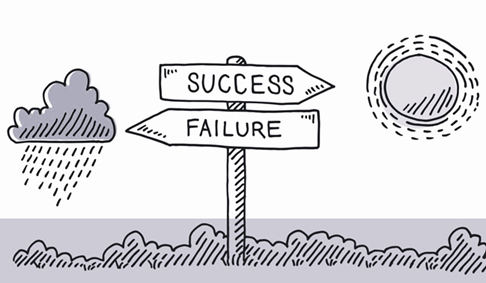Embarking on the journey of entrepreneurship is a thrilling and challenging pursuit. The startup landscape is notorious for its high risks and rewards, and aspiring entrepreneurs often find themselves pondering the critical question: What sets successful startups apart from those that fail? While there isn’t a one-size-fits-all answer, one overarching factor consistently emerges as the linchpin of startup success: Adaptability.
The Pivotal Role of Adaptability:
In the fast-paced and ever-evolving world of startups, adaptability is the secret sauce that can make or break a venture. It encompasses a range of qualities, from flexibility and resilience to the ability to learn from failures and swiftly adjust strategies. Startups operating in dynamic environments face a myriad of challenges, and the ability to navigate uncertainty is a defining characteristic of those that thrive.
One of the most celebrated mantras in the startup world is “fail fast, fail often.” However, the true differentiator lies not just in failure itself, but in the ability to learn and pivot in response. Failed initiatives or products can be valuable learning experiences, offering insights into market needs, customer preferences, and potential pitfalls. Successful startups view failures as stepping stones, not roadblocks, and use them as opportunities for growth and improvement.
Customer-Centric Adaptation:
Adaptability isn’t merely about reacting to internal challenges; it’s also about staying attuned to the ever-changing needs and preferences of the target audience. Successful startups prioritize customer feedback and use it to refine their products or services continuously. A customer-centric approach, coupled with a willingness to iterate based on real-world feedback, fosters a culture of responsiveness that resonates with the market.
Cultural Flexibility:
Beyond product adaptation, the culture within a startup plays a pivotal role in determining its fate. Cultivating a flexible and adaptive organizational culture empowers employees to embrace change, take calculated risks, and experiment with new ideas. A startup’s ability to foster an environment that values innovation, collaboration, and continual learning can be a game-changer in the competitive business landscape.
Agile Methodology and Iterative Progress:
Many successful startups swear by the Agile methodology, a project management approach that emphasizes iterative progress and adaptability. By breaking down complex projects into smaller, manageable tasks and regularly reassessing priorities, startups can quickly adjust their course based on emerging trends, market shifts, or unforeseen challenges.
Conclusion:
In the unpredictable realm of startups, the difference between success and failure often boils down to one fundamental factor: adaptability. The ability to learn from failures, listen to customers, cultivate a flexible culture, and embrace an agile mindset positions startups to navigate the turbulent waters of entrepreneurship successfully. Aspiring entrepreneurs should recognize adaptability as a core competency and integrate it into the DNA of their ventures, understanding that in the ever-changing business landscape, the ability to adapt is not just a strategy—it’s the defining strategy.
Who we are: Funded.com is a platform that is A+ BBB accredited over 10+ years. Access our network of Angel Investors, Venture Capital or Lenders. Let us professionally write your Business Plan.





 Rss Feed
Rss Feed


